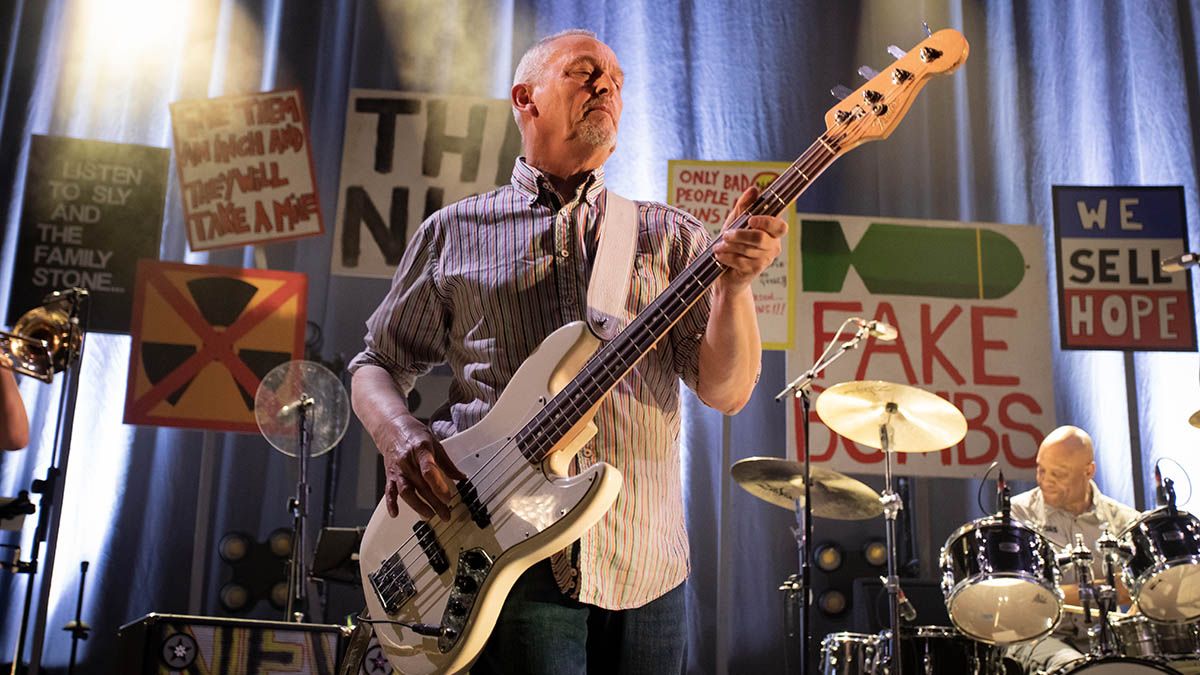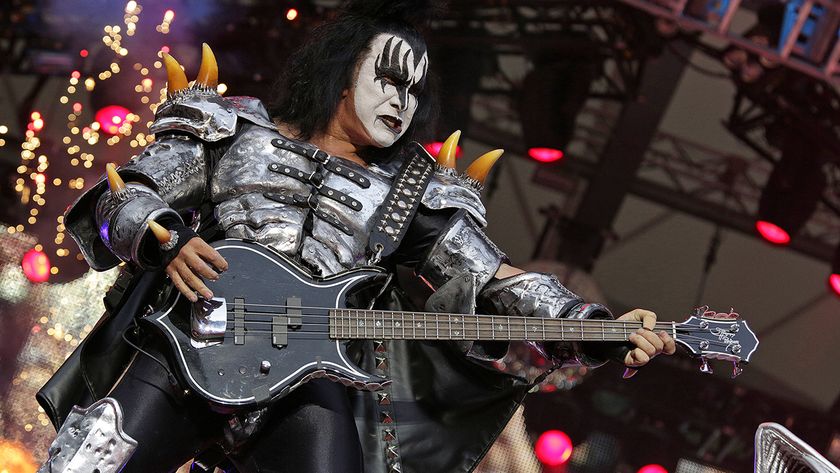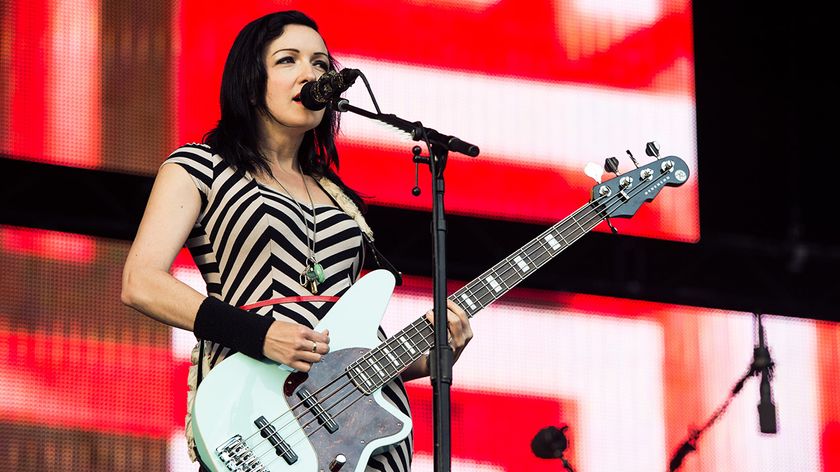The Specials' Horace Panter: “In the '60s, the clever bloke played lead guitar, his best mate was taught rhythm, and the guy who wanted to play guitar, but wasn’t very good, ended up playing bass!”
Ska legends the Specials are back with a triumphant new album, Protest Songs 1924-2012. The great Horace Panter reveals its troubled genesis

“We realized we were in danger of becoming the Best Specials Tribute Band In The World,” chuckles Horace Panter, “and that’s something none of us are interested in becoming. The time was right, and oddly, the pandemic gave us, as it did many people, a chance for a rethink.”
We’re sitting with our morning coffees in a freshly-gentrified quarter of Birmingham, where the Specials are playing tonight, and we’re talking about how one of the UK’s most emblematically political bands have found a whole new lease of life.
In March 2020, the Specials convened for what they thought would be the recording of a new album. The pandemic put paid to those plans, but oddly, it also gave the group – now pared down, after the sad passing of drummer John Bradbury in 2015, to three original members, vocalists Terry Hall and Lynval Golding alongside Panter – a fresh sense of purpose.
“Our last album, Encore, was really well received, and was very successful,” recalls Panter. “The record company took up the option and said ‘How about you do another one?’ We thought about it and thought, ‘Well, let’s do a reggae record’, so we got together and played some songs, just to see what this iteration of the band sounded like.
“But then Nikolaj Torp Larsen, our keyboard player, and Lynval came down with this kind of flu thing in early February – and three weeks later, hey, whoa, pandemic! Lynval goes back to Seattle, Terry’s stuck in his house down in London, I’m stuck up in the Midlands – and that’s the end of that.”
As with so many musicians, Covid didn’t just play havoc with the Specials’ ability to play collaboratively, it also ruined the individual artists’ normal working methods.
“Absolutely,” nods Panter. “Terry is the main lyricist, and he can’t write at home: He needs a physical separation from his home to work. He can’t write in his back bedroom or the garden, so for him and for all of us, the pandemic really spelled the end of our creative process. But of course, as the lockdown kept getting longer, we were all thinking, ‘What else can we do?’”
Get The Pick Newsletter
All the latest guitar news, interviews, lessons, reviews, deals and more, direct to your inbox!
He adds: “Lynval said, ‘Let’s do a covers album – an album of protest songs’. 2020 became the year of protests: The Black Lives Matter protests particularly affected and inspired us. The hardest part of the record was choosing the songs, which we did in the first lockdown, and once the second lockdown was over it was like, ‘Quick, let’s get in a studio and do it!’”
Protest Songs 1924-2012 is a stunning return for the Specials, a reminder of the band’s political edge and of their maturing skills. It also captures just what a smoking-hot band they’ve become after a decade of reunited touring. Was the process of deciding which songs to do democratic, or a battle?
“We’re old enough to be able to sit down and talk,” he chuckles. “We started off with a list of 50 songs, and narrowed it down to 12. We all had personal choices that we really wanted to do: For me, those were two Talking Heads songs and a Frank Zappa song, Trouble Every Day.
“His debut album Freak Out! was the first LP I ever bought. It looked at me from the shelves of my local record store in 1966. I would have been 14 or 15, and here was this sleeve with a photo of these very dangerous men. I’ve always thought that song, written in response to the 1965 Watts riots, sounded like it could have been written a couple of months ago. It could soundtrack riots in Portland or Seattle right now.”
With many of these songs you don’t think ‘How can we improve this?’, it’s more about preserving that basic kind of instrumentation
Some of the other cuts were unexpected to say the least. “The song Fuck All The Perfect People blew us all away,” says Panter. “Apart from Terry, none of us had heard it before. It was written by Chip Taylor – the actor Jon Voight’s brother – who also wrote Wild Thing. He wrote it after visiting a prison in Norway, and it’s written from the point of view of those prisoners he met.
“It’s a fabulous song, and so simple. With many of these songs you don’t think ‘How can we improve this?’, it’s more about preserving that basic kind of instrumentation. With Talking Heads’ Listening Wind – another of my choices – me and John Bradbury had always wanted to explore the idea of doing that song but adding roots reggae drums to it, making it even more like ‘world music’. So in a way, it was a little bit of a tip of the hat to Brad.”
Once the songs were decided, the album came together uncharacteristically smoothly, he explains. “Our original plan was to do it like a campfire thing – more or less acoustically, just one mic, and everybody in the same room with minimal overdubs.
“We wanted that kind of old-school analog warmth, so the songs were basically arranged more or less on the day of recording. We did a couple of run-throughs and then it was ‘Okay – press record!’ It was recorded to tape, right on the desk that Bob Marley mixed his Exodus album on, so it was really hot. The speed we got the album together reflected our togetherness, and also just how good it was to be back in a room, making music together.”
I'm very dubious of bassists who change bass for every song. I'm always looking to avoid wasting time and to keep things simple
Asked about his history as a bass player, Panter explains: “In groups in the '60s, the clever bloke could play lead guitar. His best mate was taught to play rhythm, and then there was always the guy who really wanted to play guitar, but wasn’t very good at it – so he ended up playing the bass.
“I watched the Searchers on Thank Your Lucky Stars in 1963, and I thought their bassist Tony Jackson looked so cool. That was it for me. I already had an acoustic guitar that I couldn’t play, but then I bought a bass and learned to play it, vaguely.
“It wasn’t until I moved to Coventry and met a guy who could really play the drums, and moved in with a keyboard player, that I realized I wanted to get good. I paid my dues in a college band, playing Knock Three Times and I Saw Her Standing There in innumerable working men’s clubs up north, and then in 1977 [Specials keyboard player] Jerry Dammers asked me if I wanted to be in the band he was putting together. It all grew from there.”
As for bass gear, Panter is in celebratory mood. “I’ve finally got myself an endorsement deal here!” he enthuses.
“I’m an old age pensioner, but Fender finally gave me a couple of very nice Professional II Jazz basses. I’m using the maple-neck one tonight. My amplification is by Blackstar, and for little side gigs I’ve got an Ashdown 1x15 cab and a Fender amp that cost me 80 quid – I’ve been using that for 20 years.
“I’ve gone through those overly complex amps with 12-band graphic equalizers, but I’d never do anything with them. For the bass, I’m just after one sound – and I always stick with one bass all night. I’m very dubious of bassists who change bass for every song. I’m always looking to avoid wasting time and to keep things simple.”
What advice would Panter give to any of our readers who are just starting out on bass? “When I was 14, I knew a kid who knew about playing bass, and I asked him ‘What do you do?’ He looked down his nose at me and said ‘It’s just a matter of putting your fingers in the right place’. I slunk away, considerably chastened, but in retrospect he was right.
“Also, buy a good coat. They’re great for folding up and putting inside the bass drum, as well as coming in handy when the van breaks down at half past three in the morning when you’re 50 miles from home and it’s November. Crucially, do what you have to do. When you start off, you always want to be some kind of virtuosic jackass, the King Of Bass. Then you realize that you never will be, so you either give up, or you think ‘What else can I do?’ and you start listening to other people.
“You realize that Donald ‘Duck’ Dunn didn’t actually play a great deal, but what he did play damn well made you dance. The first bass player I seriously studied was Andy Fraser from Free. A lot of his playing was so simple. You listen to I’ll Be Creeping and how simple his playing is... and you think ‘What else do you need?’”
- Protest Songs 1924-2012 is out now via Island.

“You can set up amplifiers and drums to your heart’s content”: Gene Simmons defends paid roadie scheme

“I woke up to a DM from Shirley Manson asking if I'd be interested in the gig. We had never met”: Former Smashing Pumpkins bassist Nicole Fiorentino on how she landed her role in Garbage – with no audition










